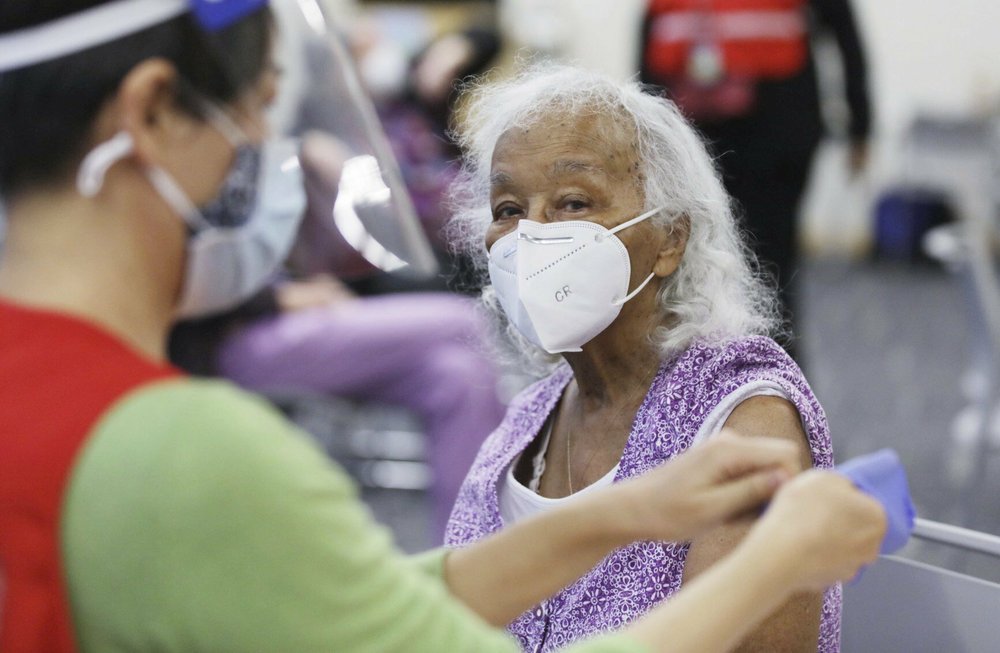
RALEIGH, N.C. (AP) — North Carolina public health officials on Thursday unveiled an updated coronavirus distribution plan that prioritizes adults 65 years or older, while removing college students as a priority over the general public.
The new, more simplified guidance from the state Department of Health and Human Services comes in response to growing concerns that its previous plan was too complicated, slowed down vaccine distribution and administration and didn’t give enough consideration to older adults who are far more likely to die from the virus than college students and other groups.
DHHS Secretary Mandy Cohen on Twitter posted a link to the updated distribution plan, which shows elderly residents who are at least 65 years old now able to get vaccinated. Previously, residents had to be at least 75 years old to be prioritized in the current group. The adjustment aligns with new guidance put forward by President Donald Trump’s administration.
“We are trying for simplicity and to really focus on the additional guidance we got from the federal government just a couple of days ago,” Cohen said in a Thursday news conference. “We are prioritizing those who are at highest risk of severe illness, those who are at highest risk from an exposure perspective and really try to get some simplicity there.”
Asked if college students are no longer prioritized over the general public, she replied, “Yes, that’s right. We’ve simplified.”
North Carolina ranks as the 10th slowest state in the nation per capita in vaccine doses administered, according to data the public health department shared with the Centers for Disease Control and Prevention on Thursday.
North Carolina’s slow pace is not unusual, given many states have vaccinated around 2% to 3% of their populations. As distribution ramps up due to a shifting federal strategy of not holding back as many doses in reserve, vaccines will be more widely available in the coming months.
Once elderly residents have gotten vaccinated, frontline essential workers will be prioritized in the third phase of distribution. The fourth phase includes anyone 16-64 years old with high-risk medical conditions, all prison inmates or others living in close group living settings who are not already vaccinated and essential workers not yet vaccinated.
Based on CDC guidance, these workers include those in transportation and logistics, water and wastewater, food service, construction, finance, information technology and communications, energy, law, media, public safety and public health.
The fifth phase makes a vaccine available to anyone who wants it.
Republican Senate leader Phil Berger has criticized Cohen and Democratic Gov. Roy Cooper for giving preference to college students who are at far less risk of death than older adults. He welcomes the change in policy.
“There still may be an awful lot of young, healthy people who fall under the very broad range of ‘essential workers’ who might go before people in their 50s and 60s who face a much higher risk of death, but this is a big move in the right direction and I’m happy about it,” he said in a statement to The Associated Press.
The reassessment of vaccination recipients happened on the same day North Carolina’s new chief justice took actions designed to kickstart more local court activities.
Paul Newby let expire predecessor Cheri Beasley’s 30-day prohibition of most judicial proceedings and several other directives she had signed in mid-December to address the surge in cases.
New jury trials are allowed to begin under Newby’s changes, provided that jurors can be kept at least 6 feet (1.8 meters) apart. Senior trial court judges no longer need to submit plans to the chief justice about how their local courthouse will manage jury trials before resuming them.
Visitors and court officials still must wear face coverings in public areas of courthouses and other common areas.
Newby, previously an associate justice who defeated Beasley in the November election, had questioned her restrictions on certain courtroom practices during the pandemic.
Thursday’s order “allows local courthouse leadership, who assess the threat of COVID-19 every day, to tailor preventative measures to meet their specific local challenges,” Newby said in a statement.
Newby asked Cooper last week to give local court officials the ability to receive COVID-19 vaccinations sooner.